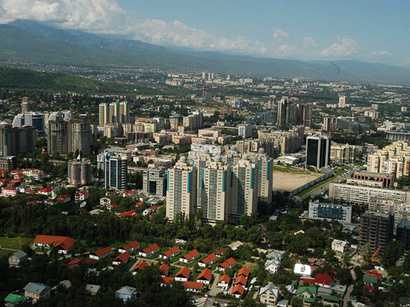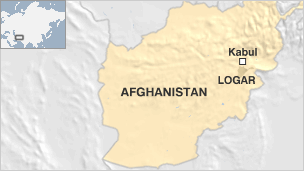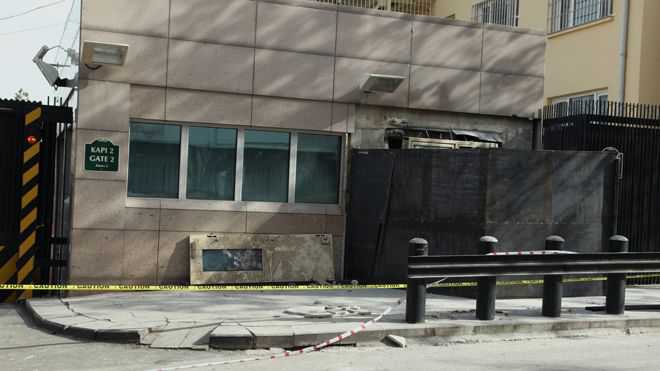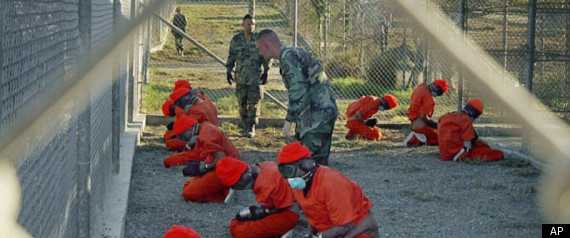What the Mullahs Are Mulling
By ANDREW FINKEL
ISTANBUL — Midday in Istanbul’s historical Beyazit district and the air suddenly fills with the call to prayer from the many royal mosques nearby. It is a reminder that a part of the city that now bustles with shoppers, university students and tourists was once the heart of a great Islamic empire.
Istanbul is no longer home to the caliphate, but it still transmits to the faithful: At the beginning of the week, leading Muslim scholars from across the world — Indonesia, Britain, Pakistan — met in a modestly sized hotel conference room to hammer out the rights and wrongs of the conflict in Afghanistan.
Although I was told not to identify participants without their permission for fear of reprisals by the Taliban, no one seemed afraid to call a spade a spade. Much effort was spent debunking the notion that the struggle in Afghanistan is a holy war rather than a straightforward tussle for power.
The conference, “Islamic Cooperation for a Peaceful Future in Afghanistan,” was the brainchild not of a cleric but of Neamatollah Nojumi, a professor of conflict resolution at George Mason University who came to the subject the hard way. At the age of 14 he was a mujahid fighting the Soviets in his native Afghanistan.
Simply by gathering people of good will in one room, the organizers believe they have succeeded where national authorities have failed.
Now his mission is to stop Afghans from fighting Afghans. The method is straightforward. Senior Afghan clerics meet with the world’s leading Islamic theologians to discuss suicide bombings, the targeting of civilians, the destruction of historical artifacts — even domestic violence.
This week’s conference culminated in a detailed and strongly worded resolution that reaffirmed Islam’s compatibility with universal human norms and called on religious institutions in Afghanistan, Pakistan and neighboring countries to end violence. The document will be circulated to more than 160,000 mosques in Afghanistan so that its findings may trickle into individual consciences there.
The meeting was the third of its kind, and the overall effort has started to make a difference, according Ataur Rahman Salim, director of the Scientific Islamic Research Center in Kabul. It is now easier to oppose the men of violence. “The majority of Islamic scholars are not afraid to speak out,” he said.
But “some are sitting on the fence,” he added. Indeed. Several speakers supported the Taliban over the Afghan government and were more critical of NATO bombings than of suicide attacks by insurgents.
I sat next to the Indian scholar Aijaz Arshad Qasmi, who is closely associated with the ultra-orthodox Deoband community. He believes that NATO, not Pakistan, is complicating the situation in Afghanistan and that government is supported by a mere 10 percent of the population. And yet he parts company with the Taliban when it comes to the use of violence. “Conflict will not solve conflict,” he told me. “Islam does not mean war.”
Nor does Islam mean denying women access to education and health services, according to the draft of the final resolution. The document also states that the violation of women’s rights contradicts the tenets of Islam.
Participants did not expect this process to solve Afghanistan’s main problem — “government without governance,” according to Nojumi — but it does allow a burgeoning civil society movement to call both the Afghan government and insurgents to account and to put pressure on interfering neighbors to back off.
ANDREW FINKEL
Simply by gathering people of good will in one room, the organizers believe they have succeeded where national authorities have failed. Whereas four clerics from Pakistan attended this conference, the Afghan and Pakistani governments have tried and have not managed to organize a meeting of clerics since the beginning of the year.
Given the diversity of participants, the degree of unanimity was remarkable. The recourse to violence in Afghanistan had no religious justification, speaker after speaker said. Or, in the words of the final declaration, “A crime committed in the name of Islam is a crime against Islam.”
Andrew Finkel has been a foreign correspondent in Istanbul for over 20 years, as well as a columnist for Turkish-language newspapers. He is the author of the book “Turkey: What Everyone Needs to Know.”
via Violence In Afghanistan Has No Religious Justification Say Muslim Clerics At A Conference in Istanbul – NYTimes.com.






